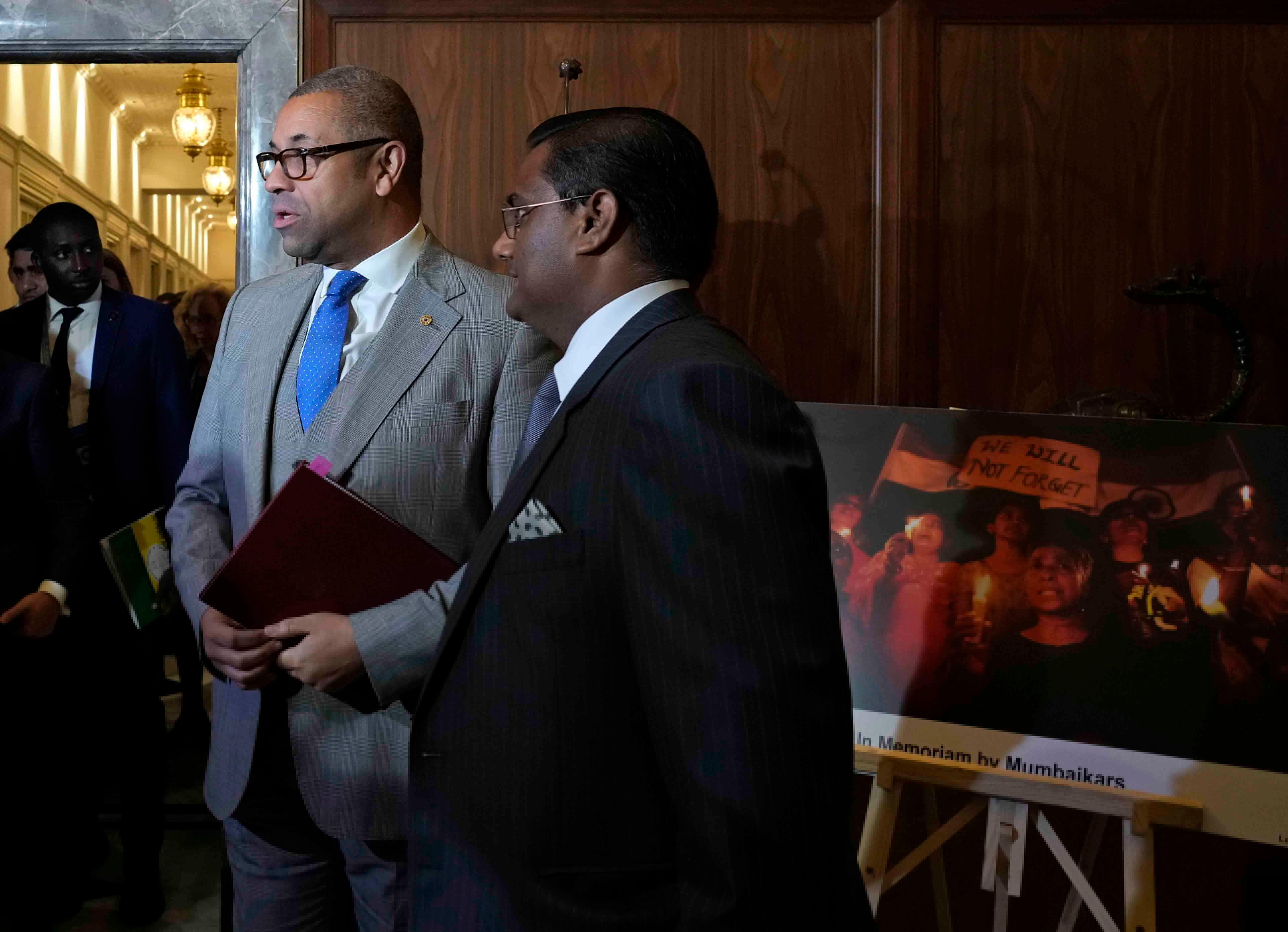UK says world must condemn use of unmanned drones to ‘inflict terror’ in Ukraine
‘Drones being used to target critical national infrastructure and civilian targets,’ says foreign secretary James Cleverly at India summit

Your support helps us to tell the story
From reproductive rights to climate change to Big Tech, The Independent is on the ground when the story is developing. Whether it's investigating the financials of Elon Musk's pro-Trump PAC or producing our latest documentary, 'The A Word', which shines a light on the American women fighting for reproductive rights, we know how important it is to parse out the facts from the messaging.
At such a critical moment in US history, we need reporters on the ground. Your donation allows us to keep sending journalists to speak to both sides of the story.
The Independent is trusted by Americans across the entire political spectrum. And unlike many other quality news outlets, we choose not to lock Americans out of our reporting and analysis with paywalls. We believe quality journalism should be available to everyone, paid for by those who can afford it.
Your support makes all the difference.British foreign secretary James Cleverly urged the world to condemn the use of unmanned drones to “inflict terror” in Russia’s invasion of Ukraine on Saturday.
The comments were made in his address to a UN counter-terrorism summit in India, the first time it has been held outside the UN’s headquarters in New York.
Hosted by India’s foreign minister S Jaishankar, it is also the UN’s first conference to focus solely on the challenges and threats posed by terror groups utilising new technologies. India announced on Saturday that it would donate half a million dollars to the UN’s mission of curbing global terror.
Mr Cleverly, who paid his respects earlier on Friday to the victims of the 2008 terror attacks at the Taj Palace Hotel in Mumbai, called on the world to bolster efforts to “starve terrorists of finance and emerging technologies” while also describing Russia’s actions in Ukraine as “inflicting terror”.
“Within the space of two decades, terrorists have gone from circulating crackly voice recordings from the depths of Tora Bora, to global online recruitment and incitement campaigns, to live-streaming attacks,” he said.
“Online incitement has radicalised vulnerable people in fa- off countries, who have gone on to use rental vans as weapons of terror.
“So we must continue to work together to fight terrorist ideologies online.”
The British foreign secretary and his Indian counterpart both highlighted the growing threat from the use of unmanned aerial systems such as drones by terror groups and criminal organisations, calling them a challenge for security agencies worldwide.
“Drones are being used currently to target critical national infrastructure and civilian targets in Russia’s brutal invasion of Ukraine.
“This is why we have sanctioned three Iranian military commanders and one Iranian company involved in the supply of drones,” Mr Cleverly said.
Mr Jaishankar said: “In Africa, drones have been used by terrorist groups to monitor the movements of security forces and even of UN peacekeepers, making them vulnerable to terrorist attacks.”
He also said new technologies, like encrypted messaging services and blockchain, are increasingly misused by terror groups and malicious actors, sparking an urgent need for the international community to adopt measures to combat these threats.
“Internet and social media platforms have turned into potent instruments in the toolkit of terrorist and militant groups for spreading propaganda, radicalisation and conspiracy theories aimed at destabilizing societies,” he said in his keynote address.
India has earlier expressed regret over the United Nations’ inability to act in some cases when it came to proscribing terrorist groups because of political considerations, undermining its collective credibility and interests.
Without naming China, Mr Jaishankar referred to Beijing’s decision to block UN sanctions against leaders of Jaish-e-Mohammed, a Pakistan-based extremist group designated as a terrorist organisation by the UN.
India holds the group responsible for a 2019 attack on a paramilitary convoy that killed at least 40 soldiers in Indian-administered Kashmir. The group’s founder Masood Azhar is one of India’s most-wanted terrorists, but was let go over 20 years ago after the hijacking of an Indian passenger plane.
Both India and the United States sought sanctions against the terror group earlier this year. But China put the proposed listing of the two terrorists for sanctions on hold on technical grounds, saying it needed more time to study their cases.
Additional reporting by agencies



Join our commenting forum
Join thought-provoking conversations, follow other Independent readers and see their replies
Comments